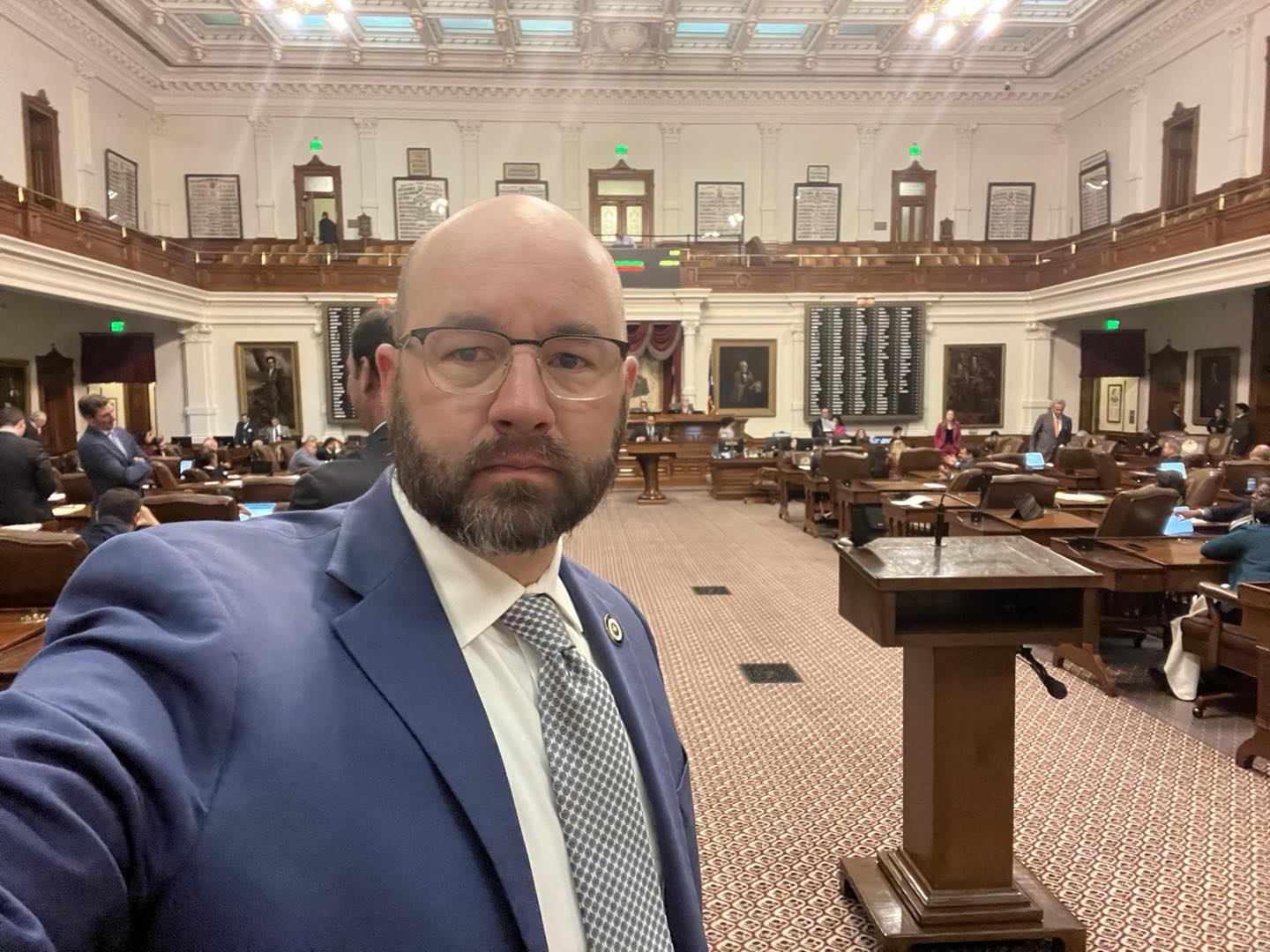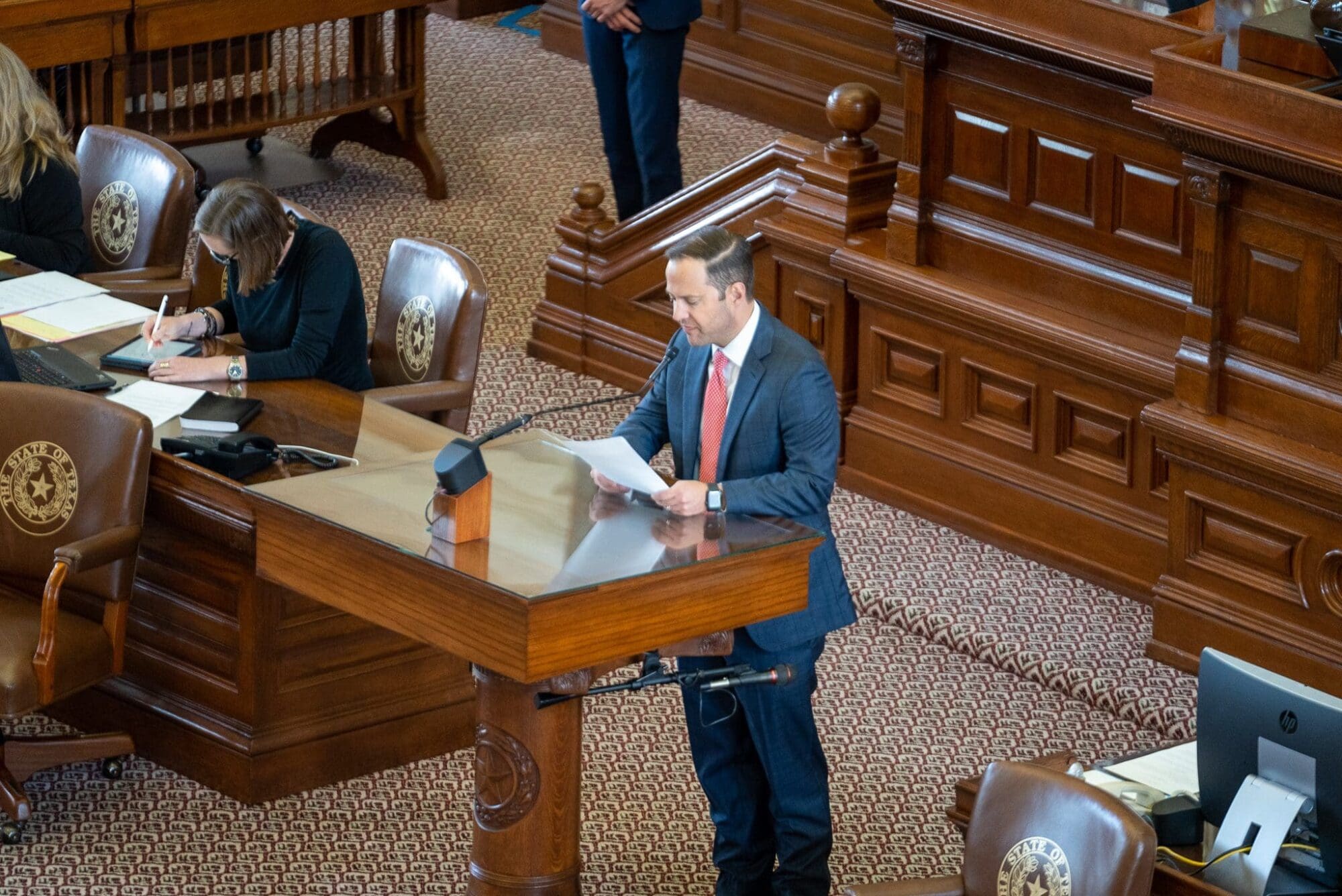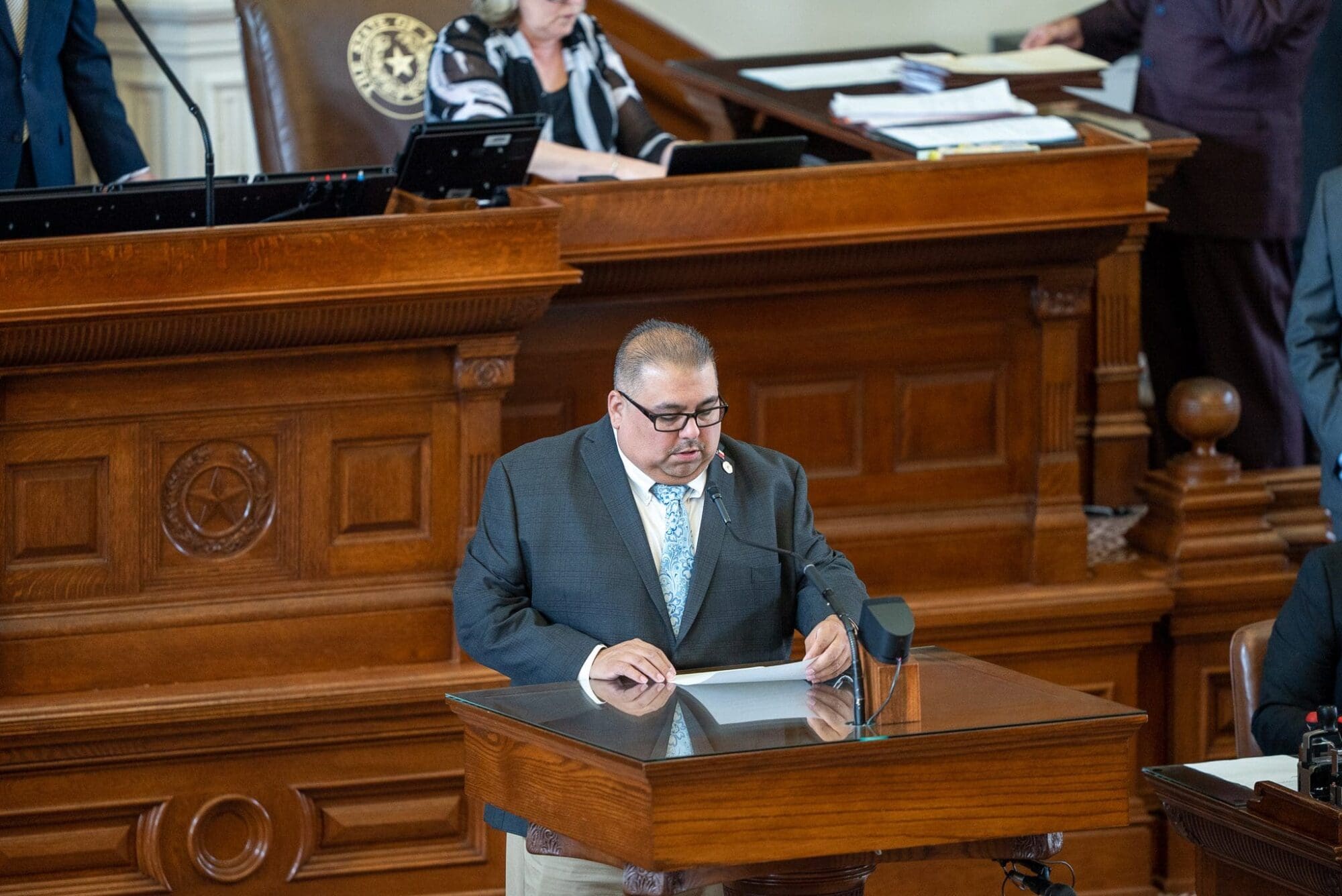On Monday, a bipartisan group of Texas lawmakers sent a letter to Texas Governor Greg Abbott, asking him to put the topic of Medicaid expansion on a future special session call.
A total of 56 House lawmakers signed the letter, including one Republican, State Rep. Lyle Larson (San Antonio).
Larson has previously advocated for Medicaid expansion in the state.
Abbott gave his endorsement for Larson’s re-election in the last cycle, after previously endorsing against him the election cycle before, when Abbott called him “Liberal Lyle” and said, “Lyle Larson is one of the most liberal Republicans in the Texas House of Representatives.”
Medicaid Expansion Efforts During the 87th Legislative Session
Notably absent from this letter are Republican lawmakers who signed on to support a Medicaid expansion bill during the regular 87th Legislative Session, including State Reps. Steve Allison (San Antonio), Kyle Kacal (College Station), Dan Huberty (Humble), Ernest Bailes (Shepherd), Travis Clardy (Nacogdoches), Stan Lambert (Abilene), Phil Stephenson (Wharton), and John Raney (Bryan).
Perhaps unsurprisingly, all of these Republican supporters of Medicaid expansion were rated on the bottom half of the overall Republican House caucus, according to the Fiscal Responsibility Index released by Texans for Fiscal Responsibility last week.
During the regular 87th Legislative Session, the Medicaid expansion bill authored by Democrat State Rep. Julie Johnson (Carrollton) garnered a total of 76 authors, including four Republican joint authors and 71 additional co-authors. This meant that if the bill had made it to the House floor, it would have had enough support to pass.
The bill was never granted a hearing in the House Human Services Committee. In the days leading up to the House’s deliberations of the overall budget for the next biennium, however, President Joe Biden seemingly attempted to tilt the scale by rescinding an approved plan put together under the former Trump administration. That plan would have extended Texas’ current Medicaid plan for an additional 10 years.
When Republican lawmakers signed on to support the bill, effectively causing there to be majority support for the expansion of Medicaid, State Rep. Garnet Coleman (D–Houston) called a press conference on April 22, which was also the day the House was to deliberate the draft state budget. Coleman announced he was going to offer an amendment to the budget to expand Medicaid.
The amendment ultimately failed by a vote of 68-80. Larson was the only Republican to vote in favor of the measure.
The 87th Legislative Session concluded without Medicaid expansion.
A Brief History
Upon the passage of the “Affordable Care Act,” commonly known as Obamacare, provisions existed calling for Medicaid expansion in every state. In 2012, the U.S. Supreme Court ruled in NFIB v. Sebelius that states could not be penalized for opting out of the expansion; as a result, the state of Texas chose to maintain its previously existing Medicaid rules.
In 2013, the Texas Legislature passed a bill that requires the Health & Human Services Commission (HHSC) to first receive approval by the Legislature before any Medicaid expansion decision is made.
Since then, every legislative cycle has seen its share of proposed bills related to both Medicaid expansion and various “Texas solutions” to address the numbers of uninsured Texans. None of those bills have made it through the entirety of the legislative process.
Republican & Democrat Party Positions on Medicaid Expansion
The Republican Party of Texas platform states the party’s direct opposition to the expansion of Medicaid:
- Plank 257: “We support Medicaid block grants to the states and return Medicaid to its original purpose to be temporary assistance. We oppose any further expansion of Medicaid.”
- Plank 265: “We recommend the creation of the State of Texas Health Savings Account, with funds in excess of those needed in the Rainy Day Fund, with the purpose of enabling the state to develop reserves sufficient to exist the federal Medicaid program, which will not expire nor be utilized for any other purpose.”
The Democrat Party of Texas platform states the party’s support of “policies and programs that expand Medicaid coverage to improve healthcare access coverage in Texas,” as well as to “recognize that healthcare is a fundamental right which should be affordable and accessible to all.”
Recent Efforts on the Federal Level
Texas Congressman Lloyd Doggett (D–Austin) recently announced he has authored a bill that he named the Cover Outstanding Vulnerable Expansion-Eligible Residents Now Act, which would allow local governments to bypass state government restrictions on expanding Medicaid coverage. It allows counties, cities, and other political subdivisions to apply directly to the U.S. Centers for Medicare and Medicaid Services for funds that state governments declined, while also requiring state governments to cooperate and allow access to the state Medicaid systems for the local entities that seek out the resources.
What It All Means
Texas remains one of just 12 states that have chosen not to expand Medicaid. Seemingly, state leadership remains in opposition to the efforts by Democrats and more moderate Republicans to do so.
What is unclear is whether the Biden administration will continue efforts to pressure states into doing so by roundabout measures.





